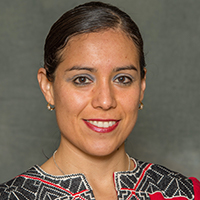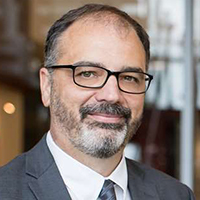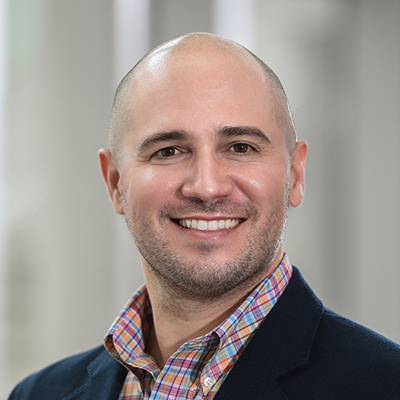Neuroethics ExpertsThe following International Neuroethics Society members have identified themselves as experts in specific areas of neuroethics and agree to receive queries from the press, requests to be a mentor, consultations with other professionals, and for other questions related to their expertise. The views and opinions expressed by these individuals are solely their own and do not represent the policies, positions, views, or opinions of the International Neuroethics Society and its members. Members may join or update details using the online form. To be removed, contact staff. V. Antonio Amodio, MD, Psychiatrist, PhD39 080 4240994
Areas of Expertise: Philosophical perspective on technology and psychiatry; Psychiatry and biolaw; Research Focus: Moral Enhancement and psychiatric disorders with moral pathologies; Psychopathy; Paul S. Appelbaum, MD1-646-774-8630
Areas of Expertise: Genetic ethics; Neuroethics; Research ethics; Informed consent; Decisional capacity; Law and psychiatry; Research Focus: Ethical, legal and social implications of advances in psychiatric and behavioral genetics;  James Beauregard, PhD1-603 860-3232
Areas of Expertise: Clinical neuropsychology; Dementia; Ageing; Theoretical neuroethics; Areas of Interest: Philosophical foundations of neuroethics; Neuroethics and the human person; Neuroethics and philosophy of technology; Clinical and ethical aspects involved in the care of individuals with Alzheimer's disease and other dementias. Research Focus: Theoretical foundations of neuroethics and the neuroethics of neurotechnology; Timothy Emmanuel Brown, PhD, Philosophy1-310-869-4532
Areas of Expertise: Biomedical ethics, philosophy of technology, feminist philosophy, aesthetics; Research Focus: Currently, my projects ask how neurotechnologies change how their users experience or exercise agency, and if those changes come with moral problems. Laura Y. Cabrera, B.Eng., MA, PhD+15173557553
Areas of Expertise: Neuroethics; Applied ethics; Ethics of emerging technologies; Neurotechnology; Ethical and social issues in deep brain stimulation and transcranial electrical stimulation (tDCS); Cognitive, affective, and social enhancement; Public attitudes around neurotechnology; International neuroethics; Environmental neuroethics; Research Focus: Laura Cabrera's interests focus on the ethical and societal implications of neurotechnology, in particular when this is used without a clear medical purpose. She has been working on projects that explore the attitudes of the general public toward pharmacological and brain stimulation enhancing interventions, as well as their normative implications. Her current work also focuses on the ethical and social implications of environmental changes for brain and mental health. 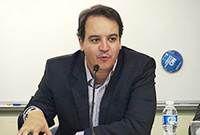 Renato César Cardoso, LLB, LLM, LLD55 31-9999763771
Areas of Expertise: Neurolaw; Free will; Morality; Research Focus: The (non-)existence of free will and the consequences this entails to law, morality and responsibility; Implications of neuroscience in relation to public policies and politics;  Adrian Carter, PhD+61-3-9902-9431
Areas of Expertise: Drug addiction; Behavioural addictions; Deep brain stimulation; Parkinson's disease and other neurological disorders; Non-invasive brain stimulation; mHeatlh and wearable technologies; Mental health policy and public health; Personality and identity; Lived experiences; Research Focus: My current research examines the impact of neuroscience on understanding and treatment of addiction and other compulsive behaviours (e.g. gambling, food addiction, internet gaming, hypersexualtiy), including: our notions of agency, identity and moral responsibility; the use of coercion and the capacity for voluntary control of addictive or compulsive behaviours; lived experiences of addiction, and the use of emerging technologies (e.g. deep brain stimulation, virtual reality, wearable technologies) to treat addiction.  Hervé Chneiweiss, MD PhD331 4427 5294
Areas of Expertise: Neurology; Biology of glial cells; Brain tumors; Gliomas; Neural stem cells; Neurodegenerative disorders; Anticipation; Environmental neuroethics; Research Focus: Impact of biomarkers on anticipation of the disease;  Jayashree Dasgupta, MPhil, PhD+91 9717855700
Areas of Expertise: Clinical psychology; Global mental health; Research Focus: Exploring opinions towards use of cognitive enhancements with children in LMIC; Development of services for geriatric care in India; Veljko Dubljevic, Ph.D., D.Phil.01 919-515-6219
Areas of Expertise: NeuroComputational ethics; Ethics of AI; Cognitive enhancement; Cognitive neuroscience of ethics; Ethics of technology; Science, technology and society (STS) Research Focus: NeuroComputational modeling of moral decision making, and ethical analysis of neurostimulation technology; Nita Farahany, JD, PhD01 919-613-8514
Areas of Expertise: Law and neuroscience, Bioethics; Neuroscience and privacy; Consumer tDCS and EEG devices; Cognitive enhancement; Research Focus: Nita A. Farahany is a leading scholar on the ethical, legal, and social implications of biosciences and emerging technologies, particularly those related to neuroscience and behavioral genetics.  Ashley Feinsinger, PhD01 310-206-1532
Areas of Expertise: Neuroethics; Philosophy; Philosophy of Language; Intracranial research; BCI early feasibility research; participant engagement Research Focus: Ethics of basic neuroscience research in humans and improving participant engagement in neurotechnology research Joseph J. Fins, MD, MACP, FRCP01 212-746-4246
Areas of Expertise: Neuroethics, brain injury, disorders of consciousness, brain death, vegetative state, minimally conscious state, neuromodulation, deep brain stimulation, clinical ethics, law and medicine, disability rights Research Focus: Application of a disability rights paradigm related to treatment of moderate to severe brain injury  Paul J. Ford, PhD01 216-312-6795
Areas of Expertise: Invasive brain stimulation; Non-invasive brain stimulation; Clinical neuroethics; Epilepsy; Movement disorders; Psychiatry; Dementia; Intensive care; Deep brain stimulation; Research; Psychogenic diseases; Research design; Qualitative research; End of life; Surgery; Multiple sclerosis; Research Focus: Studies of stakeholder perspectives and experiences in neurosurgery, chronic neurological diseases, or acute neurological injury with respect to ethics of innovation, policy, and clinical care;  Tamami Fukushi, PhD+81333442222
Areas of Expertise: Neuroethics; Responsible Research and Innovation; Research on Research; Regulatory Science; Science Communication; Neuroscience Research Focus: My current interest is neuroethics for responsible research and innovation and education of advanced technology of neuroscience in the context of science policy and regulatory science. James Giordano, PhD, MPhil01 202-687-1160
Areas of Expertise: Neurotechnology; Deep brain stimulation; Transcranial electrical stimulation; Forensic/Predictive neuroscience; Cognitive and emotional enhancement; Military neuroscience and technology; Pain control; International neuroethics; Use of neuroscience and neurotechnology in public safety and national security, intelligence and defense initiatives; Use of brain stimulation techniques to modify and enhance cognitive, emotional and/or behavioral functions; Technical and ethical issues in deep brain stimulation (DBS) and transcranial electrical stimulation (tDCS); Research Focus: Neuroethical issues arising in and from neuroscientific and neurotechnologic research and use in medicine, public life and national security and defense; 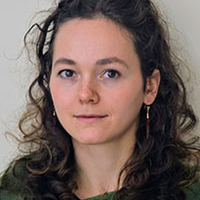 Saskia Hendriks, MD, PhD+1 301 435 8725
Areas of Expertise: Research ethics; Ethical, legal and societal implications of emerging technologies; Karen Herrera-Ferrá, MD, PhD+ 52 1 55 41338062
Areas of Expertise: International neuroethics; Neuroethics in the developing world; Considerations of ethnographic, cultural and neurocognitive diversity in the use of neuroscience and neurotechnology; Violence; Psychiatry; Global mental health; Human rights; Research Focus: Biocultural considerations and ethical, legal and social issues and concerns in the use of neuroscience and neurotechnology in developed, developing and non-developed countries; Marcello Ienca+41 44 632 03 13
Areas of Expertise: Theoretical neuroethics; Empirical neuroethics; Data ethics and governance; Ethics of artificial intelligence; Theoretical cognitive science; User-centered and ethical design; Technology assessment; Technology and human rights; Health policy; Research ethics; Philosophy of mind; Philosophy of science; Philosophy of technology; Research Focus: My research focuses on the ethics and governance of biomedical data, ethically aligned artificial intelligence (AI), neuroethics, responsible innovation for emerging technologies at the human-machine interface and on the nexus between emerging technologies and human rights. I combine philosophical and empirical methods. I am the PI of several research projects on in the areas of neurotechnology, Artificial Intelligence, and digital health. I am also an expert advisor to the Council of Europe’s Ad Hoc Committee on Artificial Intelligence and a member of the Steering Group on Neurotechnology and Society of the Organisation for Economic Co-operation & Development (OECD). Judy Illes, PhD, FRSC, FCAHS1 (604) 822-0746
Areas of Expertise: Neuroethics; Neurotechnology; Biomedical ethics; Incidental findings; Neuroimaging, addiction; Mental health Research Focus: Ethical, legal, social and policy implications of advances in the neurological sciences;  L. Syd M Johnson, PhD, HEC-C1 315-992-5376
Areas of Expertise: Research ethics, animal ethics, brain injury, disorders of consciousness, brain death, brain implants; Research Focus: Disorders of consciousness, brain death, animal research; Fabrice Jotterand, PhD, MA+1 414-955-8451
Areas of Expertise: Neuroethics; cognitive and moral bioenhancement; use of neurotechnologies in psychiatry; personal identity and neurotechnologies; anthropological implications of human-embodied AI interfaces; medical professionalism; philosophy of medicine; bioethics; moral/political philosophy; Research Focus: Ethical, anthropological, social, and regulatory implications of emerging neurotechnologies in the clinical and social context.  Ralf J. Jox, MD PhD+41 79 556 6258
Areas of Expertise: Clinical neuroethics, disorders of consciousness, dementia, brain death, brain-computer interface Research Focus: My current work in neuroethics is focused on ethical and anthropological implications of brain-computer interfaces.  Philipp Kellmeyer, Dr med, MD, MPhil++49-761-270-87570
Areas of Expertise: Neurology; Neuroimaging; Cognitive Neuroscience; Brain-Computer Interfacing; Neurophilosophy; Neuroethics; Research Focus: I currently work on a novel wireless brain-computer interface for severely paralyzed patients; Eran Klein, MD/PhD1-206-685-8915
Areas of Expertise: Neurology; Neurotechnology; Brain-computer interface (BCI); Deep brain stimulation (DBS); Dementia; Informed consent; Research Focus: I currently work on ethical issues arising from the development and translation of neurotechnologies, specifically brain-computer interface (BCI) and deep brain stimulation (DBS).  Karola Kreitmair, PhD, MSc+1-608-262-3701
Areas of Expertise: Clinical neuroethics; Consciousness; Digital behavioral technology Research Focus: Recent work includes ethical issues around allocation strategies for critical resources; the ethics of digital behavioral technology, with a particular focus on the phenomenological, epistemological, and existential implications of self-tracking technology; and the ethical duties generated by consciousness, such as in minimally conscious state patients and cerebral organoids. Denis Larrivee, PhD1 864-607-3442
Areas of Expertise: Philosophical perspectives on human nature, neuroscience, and neurotechnology; Ethical and cultural implications of neuroenhancement; Research Focus: Philosophical and ethical issues at the intersection of human nature and neurotechnology; Neuroaugmentation and philosophy of systems; Gabriel Lázaro-Muñoz, PhD, JD, MBE1-713-798-2672
Areas of Expertise: Invasive neuromodulation; psychosurgery; deep brain stimulation for movement disorders; deep brain stimulation for psychiatric disorders; pediatric deep brain stimulation; genetics; psychiatric genetics, ELSI; embryo screening for polygenic conditions; Research Focus: Current NIH-funded grants focus on neuroethics issues related to closed-loop deep brain stimulation, pediatric deep brain stimulation, and psychiatric genetics. Lori Marino, PhD1-435-644-4436
Areas of Expertise: Comparative neuroscience, animal behavior, brain evolution, intelligence; consciousness, self-awareness, cetaceans; Research Focus: The evolution of brain and intelligence in cetaceans José M. Muñoz, PhD+1 (617) 251-4265
Areas of Expertise: Neurorights; Neurolaw; Philosophy of mind and action; Free will; Research Focus: Theoretical foundations of neurorights and neurolaw.  Emily R.D. Murphy, PhD, JD310-983-3345
Areas of Expertise: Behavioral neuroscience; Law; Brain science as evidence; Brain-science based policy; Addiction; Criminal law; Litigation; Public interest law; Civil rights; Disability; Education;  Reina R. Nadler MA, JD[email protected]
Areas of Expertise: Law and neuroscience; Scientific expertise in democracies; Social impact of brain science; Neuroenhancement; Regulation of neurotechnology and neurosurgery; Neuroethics and trans studies; Research Focus: If a society's legal system embraces neurotechnologies for detecting mental states, assessing criminal risk, or 'reforming' prisoners, can it remain egalitarian and democratic in character? Peter B. Reiner, VMD, PhD1-250-537-6560
Areas of Expertise: Cognitive enhancement, autonomy, privacy of thought, Empirical neuroethics Research Focus: Neuroethics of artificial intelligence, especially the issues associated with AI as a means of cognitive enhancement Julie Robillard, PhD1 (604) 827-0642
Areas of Expertise: Neuroethics; aging; dementia; technology; eHealth; Social media; Research Focus: Ethics of emerging technologies for dementia and mental health research and care;  Karen Rommelfanger, PhD Neuroscience1 (404) 727-1150
Areas of Expertise: Bioethics; Neuroscience; Placebo; Brain machine interface; Brain stimulation; Psychogenic disorders; Cross-cultural ethics; Psychiatry; Neurology; Mind-body; Cognitive enhancement; Neural prosthetics; Research Focus: Dr. Karen S. Rommelfanger's research explores how evolving neuroscience and neurotechnologies challenge societal definitions of disease and medicine. A key part of her work is fostering communication across multiple stakeholders in neuroscience. As such she edits the largest international online neuroethics discussion forum The Neuroethics Blog and she is a frequent contributor and commentator in popular media such as The New York Times, USA Today, and The Huffington Post.  John Z. Sadler, MD+01 214-648-4960
Areas of Expertise: Psychiatric ethics; Philosophy of psychiatry; Psychiatric diagnosis; Crime and mental illness; Research Focus: Currently my major projects are two books: authoring "Vice and Psychiatric Diagnosis," a consideration of whys and implications of wrongful and criminal concepts in psychiatric categories, and co-editing "The Oxford Handbook of Psychotherapy Ethics," a reference text with Manuel Trachsel as lead editor. Laura Specker Sullivan, PhD+1 (206) 543-5855
Areas of Expertise: Biomedical ethics; Ethical theory; Neuroethics; Cross-cultural ethics; Japanese philosophy; Philosophy of law; Informed consent; Brain computer tnterfaces Research Focus: Conceptual and empirical ethical issues at the intersection of ethical theory, biomedical science, and society; Current projects include studies of brain computer interfaces, persuasive technology, and Japanese informed consent practices; Francis X. Shen, JD, PhD617-432-2492
Areas of Expertise: Law and neuroscience; criminal law; diversity, equity, and inclusion (DEI); neuroethics; bioethics; AI ethics; technology ethics; empirical bioethics; quantitative and survey analysis; research ethics; sports concussions; Research Focus: Legal and ethical challenges and opportunities arising from advances in neuroscience, neurotechnology, and AI  Anthony Weiss, MD, MBA617-667-1351
Areas of Expertise: Biomendical ethics, Neuroethics, Psychiatric ethics, Psychosurgery, Cognitive liberty/neuroprivacy, Regulatory aspects of healthcare delivery;
|


